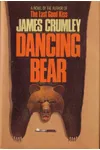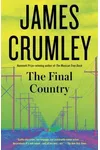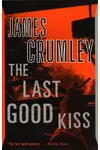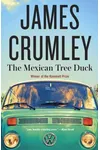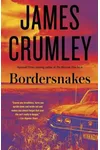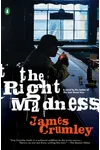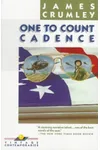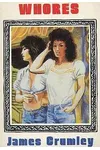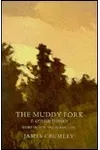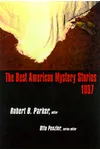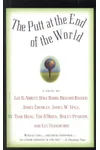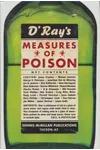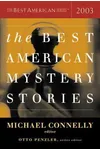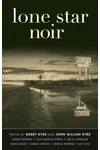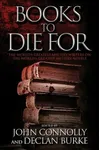Picture a Texas-born storyteller who poured whiskey-soaked grit and post-Vietnam soul into hardboiled crime fiction—meet James Crumley! Known for his raw, poetic novels, Crumley redefined the private eye genre with his masterpiece, The Last Good Kiss, often hailed as one of the most influential crime novels of the last 50 years. His flawed, boozy detectives and vivid Western landscapes hooked readers, even if mainstream fame eluded him.
With a cult following and a knack for blending Raymond Chandler’s sharp prose with Hunter S. Thompson’s wild energy, Crumley’s work resonates with crime fiction fans and literary rebels alike. Let’s dive into the life, stories, and lasting legacy of this hardboiled legend.
The Making of James Crumley
Born on October 12, 1939, in Three Rivers, Texas, James Arthur Crumley grew up in a hardscrabble world where his father worked oil fields and his mother waited tables. A star student and football player, he snagged a Navy ROTC scholarship to Georgia Tech but left to serve in the U.S. Army from 1958 to 1961, stationed in the Philippines. Later, he earned a B.A. in history and an M.F.A. from the Iowa Writers’ Workshop, where his Vietnam War novel, One to Count Cadence (1969), began as his thesis. It wasn’t until poet Richard Hugo nudged him toward Raymond Chandler that Crumley found his calling in detective fiction.
James Crumley’s Unforgettable Stories
Crumley’s novels are gritty symphonies of violence, dark humor, and moral ambiguity, set against the sprawling American West. His breakthrough, The Last Good Kiss (1978), follows C.W. Sughrue, an alcoholic ex-soldier turned PI, on a haunting quest to find a missing author and a long-lost girl. Its iconic opening line—'When I finally caught up with Abraham Trahearne, he was drinking beer with an alcoholic bulldog named Fireball Roberts'—is a genre classic. The book’s raw emotion and post-Vietnam despair redefined hardboiled fiction.
Sughrue stars in three more novels: The Mexican Tree Duck (1993), a chaotic hunt involving drug cartels; Bordersnakes (1996), where he teams up with Crumley’s other PI, Milo Milodragovitch; and The Right Madness (2005), a reflective tale of betrayal. Milo, introduced in The Wrong Case (1975), is a kinder but equally troubled detective, appearing in Dancing Bear (1983) and The Final Country (2001). Crumley’s prose, laced with poetic lyricism and countercultural edge, paints vivid characters—think mountain hippies, corrupt feds, and broken veterans—who wrestle with a world gone sour.
Though his plots could be labyrinthine, Crumley’s focus on character and language over tidy resolutions set him apart. His work, often compared to Chandler but steeped in 1960s disillusionment, captures the moral chaos of a post-Vietnam America, making every page a thrilling, whiskey-fueled ride.
Why James Crumley Matters
Crumley’s influence on crime fiction is monumental, inspiring authors like Michael Connelly, Dennis Lehane, and George Pelecanos. Despite modest U.S. sales—his books sold better in France and Japan—he earned critical acclaim, with The Last Good Kiss named among Time’s 100 Best Mystery Novels and The Mexican Tree Duck winning the 1994 Dashiell Hammett Award. His detectives, flawed yet loyal to their own codes, brought a new depth to the genre, blending noir cynicism with post-hippie despair.
Crumley’s legacy lives in his vivid storytelling and the cult devotion he inspires. His ability to craft broken heroes and poetic prose ensures his work remains a beacon for readers craving raw, unpolished truth in their crime fiction.
- Born: October 12, 1939, Three Rivers, Texas
- Key Works: The Last Good Kiss, The Mexican Tree Duck, The Wrong Case, The Final Country
- Awards: 1994 Dashiell Hammett Award, 2002 CWA Silver Dagger
- Died: September 17, 2008, Missoula, Montana
Snag The Last Good Kiss and dive into James Crumley’s hardboiled world—where the West is wild, the whiskey flows, and the truth cuts deep!
